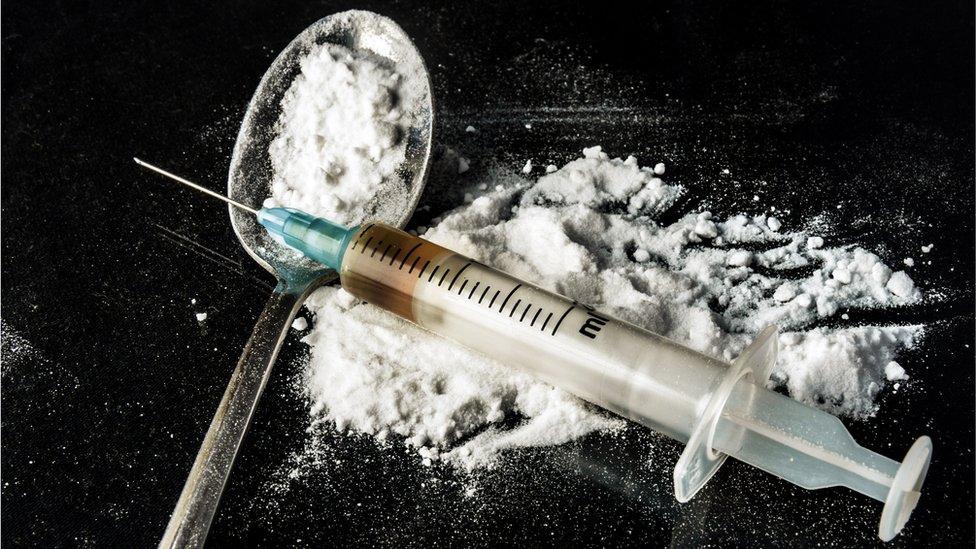Taskforce plan over Scotland's record drug deaths
- Published

Drugs deaths in Scotland hit record levels in 2017
Ministers are to assemble a taskforce to tackle the rising number of drug deaths in Scotland.
Public health minister Joe FitzPatrick said "radical steps" were needed to address the "emergency".
There were 934 drug-related deaths registered in 2017, up 66 on the previous year, with the death rate more than double the UK average.
The minister said an expert group would examine the factors behind the deaths and advise on action.
The 2017 total was the highest since records began in 1996 and more than double the 445 deaths a decade earlier.
The Scottish government has faced calls to hold a public inquiry into the problem and MPs on the Scottish Affairs committee recently launched their own investigation.
Mr FitzPatrick announced the latest plans in an article in Saturday's Daily Record., external
He wrote: "I recognise that some people believe a public inquiry would help deliver change. Sadly, these inquiries can often take years to conclude their work. I want us to move considerably faster.
"That is why I will soon be convening an expert group to examine the key drivers of drug deaths and advise on what further changes, either in practice or in the law, could help save lives and reduce harm."
He also voiced support for the introduction of a medically-supervised safe consumption facility in Glasgow to curb street injecting.
The creation of such a service, dubbed "fix rooms", has the backing of the city council but the Home Office does not support the idea.
Mr FitzPatrick said: "The UK government must recognise what Scotland faces in drug deaths is also an emergency.
"It holds the power to decide if a safe consumption facility can get the legal go-ahead, and so far they have rejected it out of hand.
"If the UK government continues to refuse the act, we call on it to pass powers to the Scottish Parliament so we can do what is necessary."
Law enforcement issues
There are currently no drug consumption rooms in the UK, and the Lord Advocate has said setting one up would require the UK government to amend the Misuse of Drugs Act.
Last year Home Office officials told Glasgow City Council it was aware of certain public health benefits of consumption rooms, but for others reasons it would not support such a plan.
Concerns included law enforcement issues, ethical quandaries for medical professionals and the risk that drug users would travel long distances to use the facility.
Scottish Labour's health spokeswoman Monica Lennon said Scotland was "experiencing a drug and alcohol crisis" that was costing thousands of lives each year.
She added: "Scottish Labour has repeatedly pressed the Scottish government to declare a public health emergency in response to this national crisis, and any step taken towards doing so is to be welcomed.
"However, this cannot be kicked into the long grass and must become a national priority for the government and its agencies."
The Scottish Conservatives said the focus should be on showing hard drug users that there is "a better way".
Health spokesman Miles Briggs said: "A cross-party approach is needed to deliver results, keep our communities safe, and change lives for the better.
"We need to see a radical new approach to drug and alcohol treatment in Scotland.
"It is clear that 20 years of the current political consensus and treatment policy is not addressing the growing problems and not helping to build a recovery service."